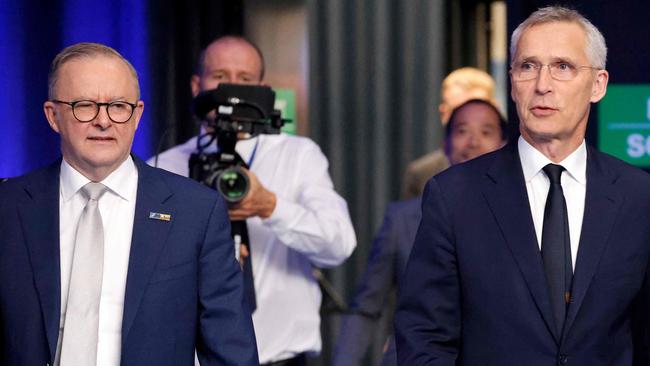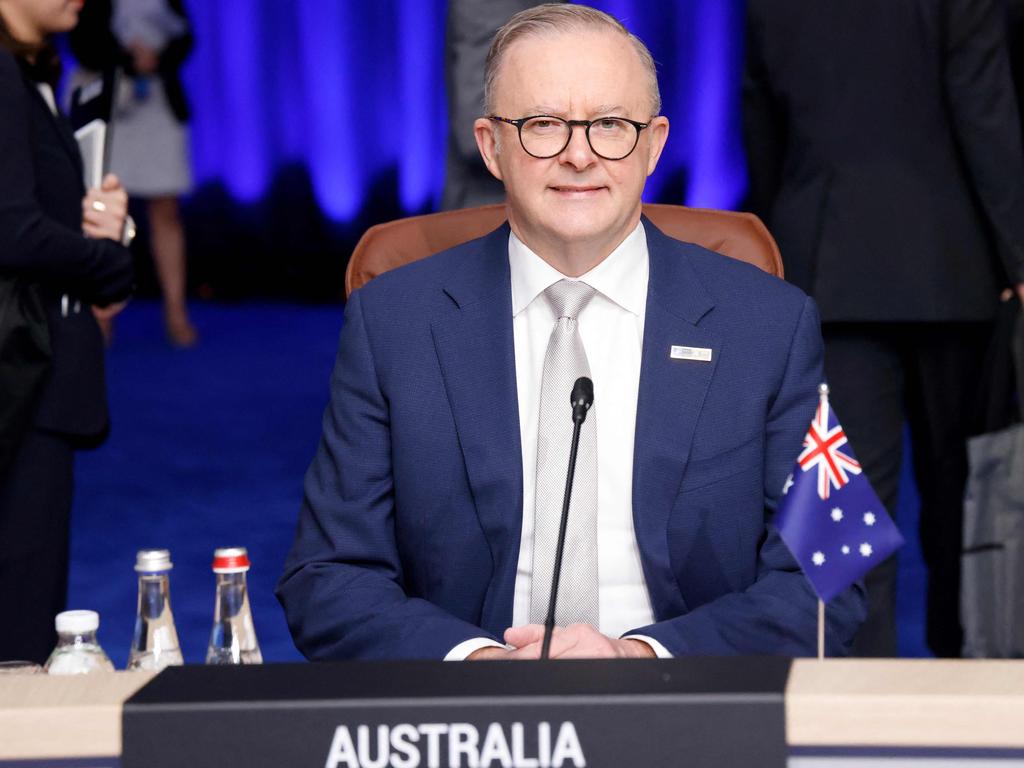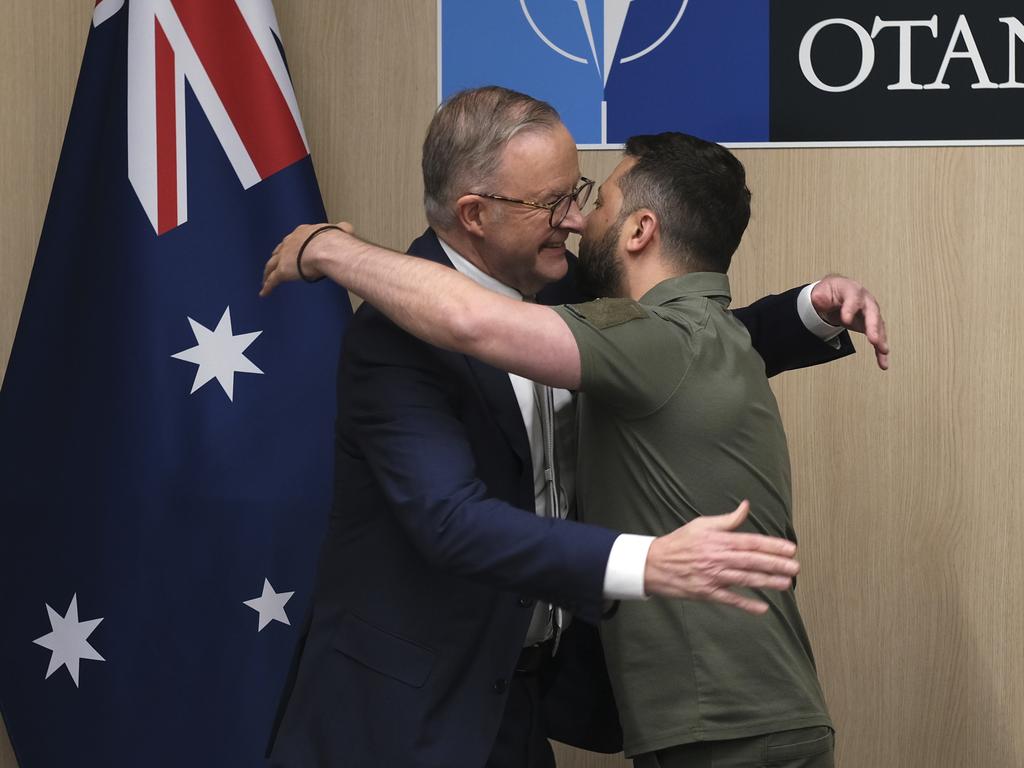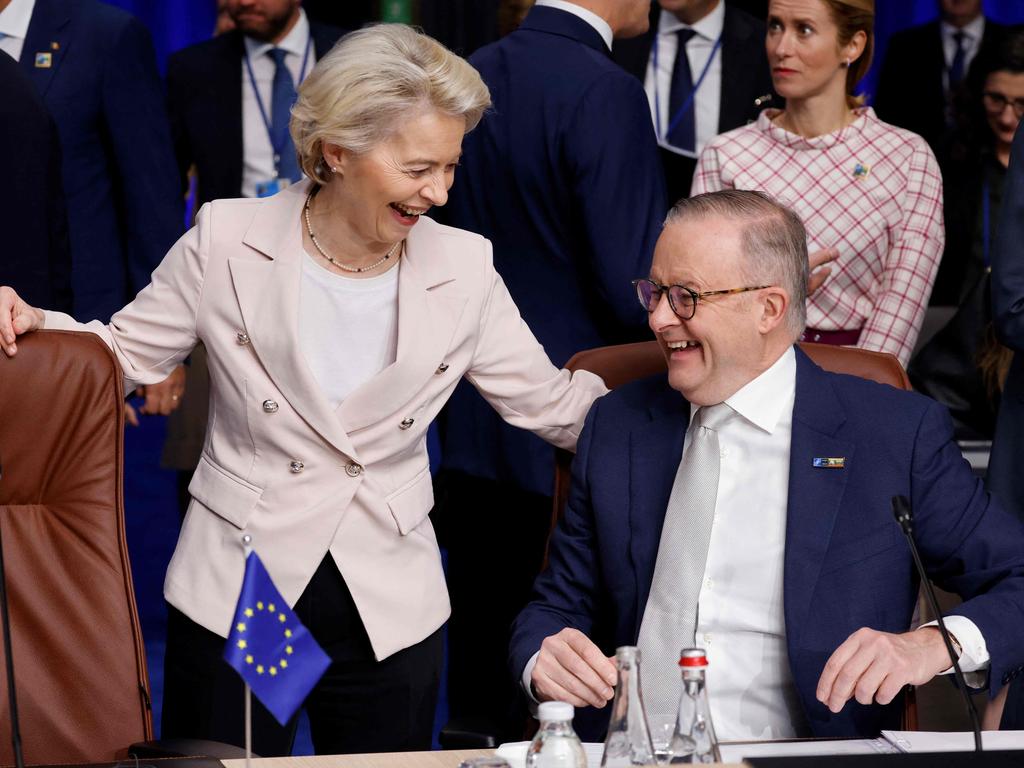AUKUS is a first step for NATO expansion into Asia: US Senators
Republican and Democrat Senators want NATO to expand into Asia to counteract China and Russia.

Senior Republican and Democrats congressmen have declared NATO’s expansion into the Asia-Pacific region “inevitable”, arguing the AUKUS security pact, of which Australia is a key member, is the first step into turning the growing military organisation into a global bulwark against Chinese and Russian power.
Democrat Senator Tammy Duckworth, a member of the influential Senate Armed Service Committee, said NATO’s expansion “had already started [given] our successful AUKUS agreement between the UK, Australia and the United States”, referring to the three way military agreement signed between the UK, US and Australian in 2021.
Talk of NATO expansion intensified during last week’s NATO summit in Lithuania, which included the leaders of Australia, Japan, Korea and New Zealand as guests, after the final communique called out China more than a dozen times for coercive and destabilising military and economic actions.
“I travel extensively throughout the Indo-Pacific, and I will tell you, our Asian allies are looking very closely to what has happened with Ukraine and realise that there is a greater need to participate themselves in NATO as well as NATO ally allies coming back into the Indo-Pacific region,” Senator Ducworth told NBC on Sunday (Monday AEST).
NATO, founded by 12 nations in 1949 to counter potential Soviet aggression in Europe after the Second World War, has recently expanded to include Finland, and shortly Sweden, both Scandinavian nations having applied to join in the wake of Russia’s invasion of Ukraine, after years of neutrality.
Republican Senator Dan Sullivan, also on the Armed Services Committee, agreed such expansion was inevitable, pointing to the attendance of Prime Minister Albanese and other Asia-Pacific leaders.
“Our Senate delegation had the opportunity to meet with those leaders, and I think that was a really strong signal with regard to NATO,” he told NBC.
The final communique of the 31 member alliance, which has traditionally focused on North Atlantic security, dwelt extensively on China for the first time, upbraiding Beijing for “ambitions and coercive policies [that] challenge our interests, security and values”.
“The PRC employs a broad range of political, economic, and military tools to increase its global footprint and project power, while remaining opaque about its strategy, intentions and military build-up,” NATO leader said, in a veiled reference to China’s long standing goal of incorporating, potentially forcibly, Taiwan into Beijing’s orbit.
France in June vetoed a push by some NATO members to open a diplomatic office in Tokyo to increase the organisation’s liaison with Asian nations, a move French president Emmanuel Macron called a “big mistake”, amid concerns it could antagonise China.
Foreign Minister Penny Wong, asked in Jakarta last week if she backed NATO’s expansion, said Canberra wanted “ASEAN as the centre of the region”. “ASEAN centrality within the Indo-Pacific is so critical to peace and prosperity and stability,” she told the ABC‘s 7.30 afterwards.
AUKUS, which provides for Australia to obtain its own fleet of nuclear-powered submarines from the 2030s, is widely seen, along with the QUAD group of nations, as a way to strengthen and better co-ordinate the response of the US and its allies to the growing threat of China in the region.
Senator Sullivan also took aim at what he said were the 7 NATO members who hadn’t lifted their annual defence spending to the equivalent of 2 per cent of GDP, despite having made obligations, a perennial issue of dispute between the US and its European allies.
“We need our other allies to step up. Canada’s spending is barely above 1 per cent; it’s unacceptable,” he said.
Australia’s total defence spending for the 2023 financial year was $48.6 billion, or 2.1 per cent of GDP, according to The Australia Strategic Policy Institute, which was the 10th consecutive year of growth after adjusting for inflation.








To join the conversation, please log in. Don't have an account? Register
Join the conversation, you are commenting as Logout